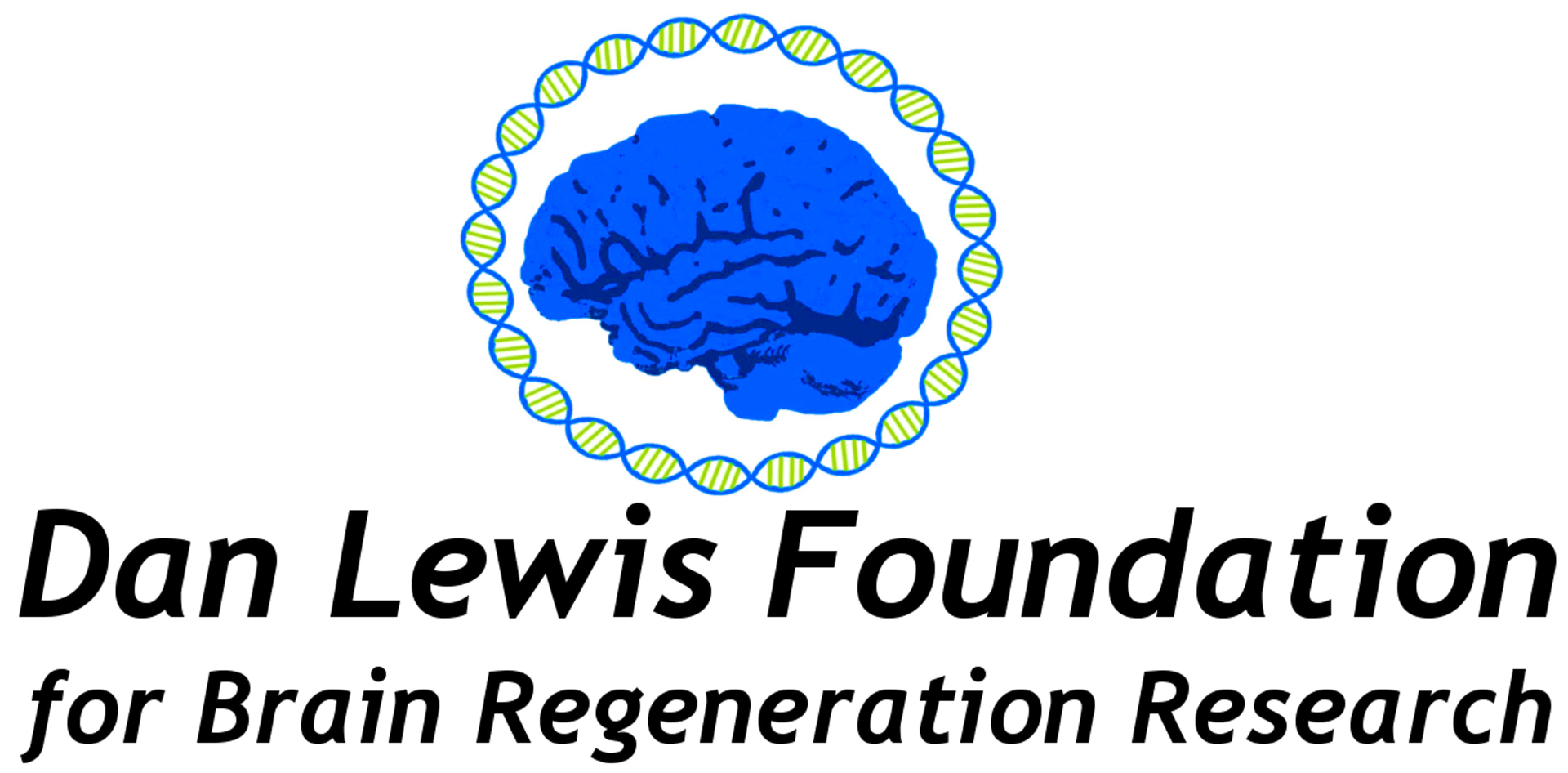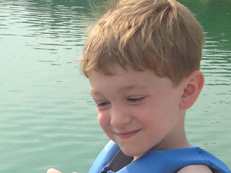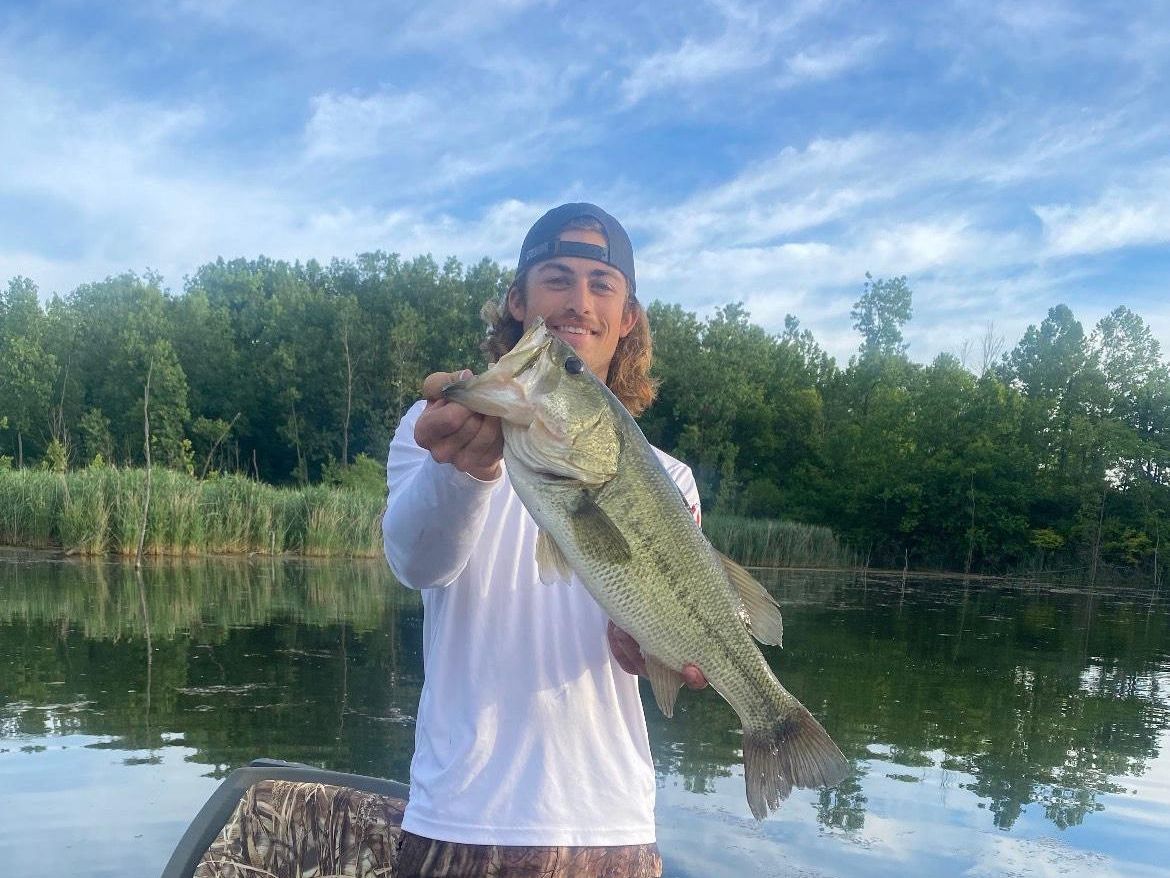TBI Stories
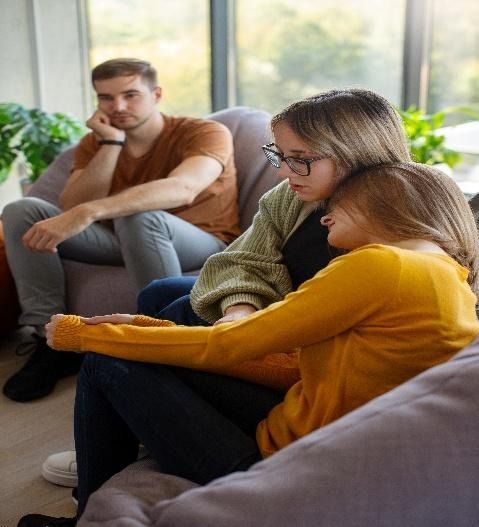
My daughter, currently nearing completion of a graduate program in counselling, recently introduced me to the term “ambiguous loss”. This term applies to a loss that is unclear and lacks certainty, leaving family members and close friends feeling stuck because it is so difficult to mourn or find closure. One type of ambiguous loss is when the person is physically present but psychologically absent because their personality, memory, cognition, or emotional connection has been altered. Examples might include a family member with dementia, a progressive disease, a severe emotional disorder, or substantial brain injury. A second type of ambiguous loss is when the person is psychologically present but physically absent. This could include a missing person due to a natural disaster, a long- term incarceration, a kidnapping, or severe estrangement from the family. This type of loss can lead to intense confusion, frozen grief, and a prolonged sense of helplessness.
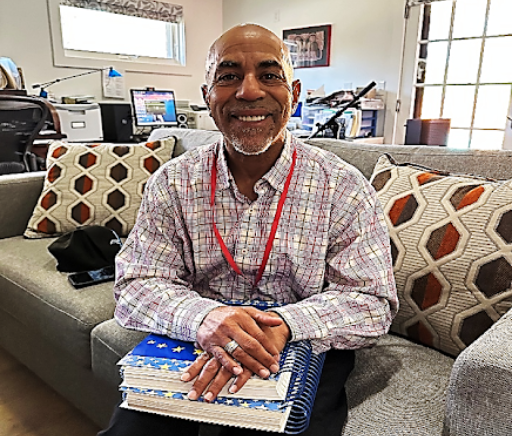
Marchell is an engaging and energetic middle-aged man who was enthusiastic about being interviewed for the DLF newsletter. He is an activist working to promote the rights and well-being of persons in the brain injury community, with a particular emphasis on helping persons with brain injury who are incarcerated or have been released from prison. Marchell is a successful businessman, proud of the company he co-founded--the Association of Young Business Owners (AYBOS), a marketing company in the Denver, Colorado area. He also works for Well Power (Denver’s Mental Health Center system) as a Zero Suicide Certified Peer and Family Specialist. Marchell is clearly a man on the move to get a lot of positive things done. But this wasn’t always the case. Marchell spent much of his younger adult life incarcerated himself for a variety of crimes including robbery and assault. He had a history of recidivism following multiple releases.
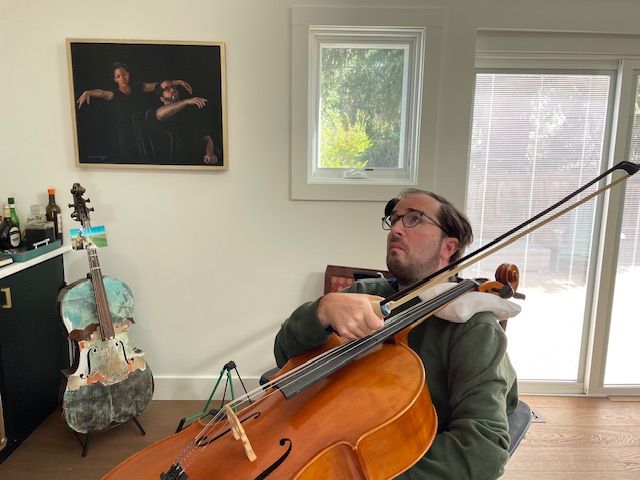
The story of Dan’s 2007 accident and severe brain injury was first posted to the DLF website in 2020. You can read “Dan’s Story” here . Over the past five years, Dan has worked hard to make progress and regain the most basic abilities. He has had to deal with many medical procedures and many challenges. Dan has done so with a calm determination that has helped him move well beyond early predictions of what his long-term status would be. Progress Dan’s medical status has greatly stabilized and his general health has been good for a number of years. Seizures that were prolonged, dangerous and often required hospitalization in the several years after his accident are now much less frequent and much more mild. He has not required hospitalization in almost 10 years. Dan’s receptive language skills have improved noticeably. He demonstrates understanding by following any motor direction (including some multi-step sequences) that he is capable of doing physically. He is more engaged in conversations and responds more quickly to questions. His expressive language has also improved. He now uses personal pronouns. He often uses 2-word phrases and sometimes up to 4-word phrases to respond to questions about preferences and feelings. Dan’s cognitive status has improved a good deal as well. He is able to count to 100 and to verbally answer simple addition, subtraction and multiplication questions. He understands the idea of “opposites” and seems to enjoy answering the question “What’s the opposite of…..?” to which he usually gets the correct answer. Dan’s schedule is filled with therapies, activities, and social experiences. He goes swimming once or twice a week, enjoys attending the Colorado Symphony most Saturday evenings, and participates in an integrated dance company called Spoke ‘N’ Motion which rehearses on Sunday afternoons and gives performances several times per year. Playing the cello remains important to Dan. With assistance, he practices his cello for ½ hour every weekday morning. He is able to bow correctly about half of the songs in Suzuki Cello Book #1 and he enjoys playing scales using different rhythmic patterns. Challenges Dan’s responsiveness has improved a good bit but he still has great difficulty initiating actions, intentions, and communication. He can make a choice when several options are presented but he rarely expresses what he wants spontaneously. It is unclear to what degree Dan experiences emotion. From an outside perspective it appears that he is exceptionally even keeled. He rarely seems to be either happy or sad, but sometimes he demonstrates interest or enjoyment by moving his very expressive eyebrows upward. Observing the relative absence of emotional expression in Dan’s everyday experience is difficult for those who love and care for him, particularly in comparison to the vibrant individual we remember. Dan continues to have very significant motor planning and motor control difficulties. He has almost no functional movement on the left side. Controlled purposeful movement on the right side shows improvement but he has a way to go. Dan has what is called cortical visual impairment. This means that while his eyes themselves are not damaged, the vision centers in his brain which process visual input work very poorly. Functionally, this means he doesn’t “see” very much. Moving himself in his power wheelchair has helped to engage his visual system and supported some integration of his vision. Dan still gets 100% of his water and food via his g-tube. His swallow has been evaluated as inadequate to allow oral feeding. Hopefully, this is something we can work on in the next few years without endangering Dan’s health. In the first several years after Dan’s accident, family and friends would often ask “Is Dan making progress?” I would imagine Dan at the one yard line of a one hundred yard football field, needing to travel 99 yards to get to the other end zone at the rate of one inch per week to be fully recovered and restored. That’s a long, long journey…but Dan hasn’t stopped moving forward, however gradually. The DLF is tracking and supporting a growing cadre of researchers in the field of brain regeneration who are capitalizing on stunning biomedical, biotechnological, and bioengineering advances to bring the hope of meaningful brain regeneration into a reality. Although it is unclear whether Dan will be a candidate for emerging brain regeneration methods, it is rather certain that within 5 years, perhaps 10 years at the most, brain regeneration procedures will be effective and increasingly available to people with serious brain injuries. The DLF is proud to play a small part in supporting the important and inexorable movement forward in brain regeneration.
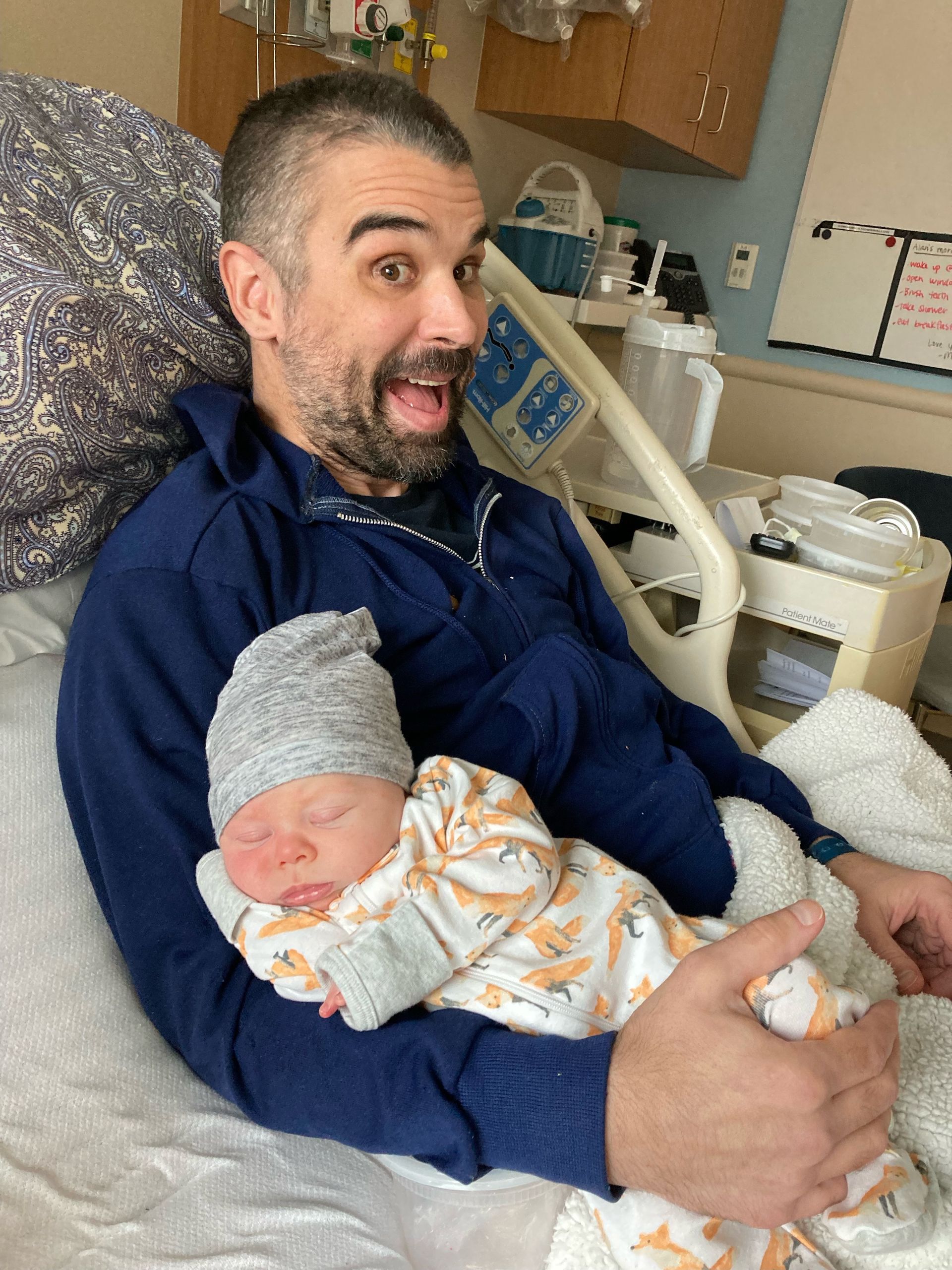
Alan was injured in 2021, at age 42. An art teacher in Lakewood, Colorado, Alan was riding his bicycle after school and was crossing at an intersection when a truck turned into the crosswalk area and hit him. Alan reports no memory of the event but has been told this is what happened. Alan says “My frontal lobe took the brunt of the impact, particularly the left frontal lobe”. Alan had a 2 ½ week stay at a nearby hospital where he, “re-learned to talk, to walk, and drink”-- although again he reports no memory of his stay there. Alan was then transferred to Craig Rehabilitation Hospital, in Englewood, Colorado. Alan says, “The only reason I knew I was at Craig is that I rolled over in bed and saw “Welcome to Craig” on the dry erase board.” During this stage of recovering, Alan repeatedly denied that he had been in an accident. Twice he tried to leave Craig on his own accord despite his wife’s and his therapists’ assurances that it was important for him to stay to recuperate from his injuries. Alan’s wife was 8 months pregnant at the time of his accident and gave birth to their son while Alan was an inpatient at Craig. Alan’s wife brought his newborn son to visit him days after the birth and Alan held him while sitting in his wheelchair, but Alan wistfully reports this is another thing he can’t remember. Alan reports that he still has significant difficulties with memory. Alan has also experienced several other neuropsychological difficulties. He states that for months after his injury, he could not experience emotion. “I could not laugh, I couldn’t cry.” Even after three years, his emotional experience is constricted. However, an emotion that is sometimes elevated is irritation and anger. Sometimes, dealing with people can be difficult because he may have temper flare-ups with little reason. This is something that Alan regrets and he is working hard with his neuropsychologist to improve the regulation of his emotions. Alan also has difficulty with organization, motivation, and distractibility. Earlier in his recovery, he had trouble sequencing and had difficulty carrying out personal and household routines. Alan has benefited greatly from therapy and his own hard work to make improvements in these areas. A chief reason that Alan works so hard in his recovery is so that he can be a good father to his son who is now almost 3 years old. He recognizes that it is important not to get frustrated when it seems that he can’t provide what his son wants or needs at a given moment. “I’m trying to raise my son the best I can…he’s at such a pivotal time in his life.” Alan’s financial situation was helped for a time by Social Security Disability Insurance payments but these payments ended. He is trying to get SSDI reinstated but the process of doing so is confusing and is taking a lot of time. Alan returned to work about 11 months ago at a liquor store (after about 2 years of not being able to work), the same store where he previously worked part time while teaching. He works in the wine department. “I sell wine and make recommendations.” When asked for advice to other brain injury survivors, Alan’s words were: “No matter how confused or upset you are or how frustrated you get, keep pressing on and moving forward because there is light at the end of the tunnel even though it may seem long. Keep moving forward and don’t give up no matter what anyone says to you”. Alan added that supports for individuals with brain injury are very important. He has found support groups, retreats, and seminars/events where brain injury survivors can share their experience to be very helpful. The volunteer work he does at Craig Hospital has been valuable for him. Alan is an inspiring individual. Despite having scarce memory of his accident and some confusion about the functional losses he has experienced, Alan has worked hard to make his recovery as complete as possible. He continues to work hard to progress and to express gratitude for those who have assisted him along the way.
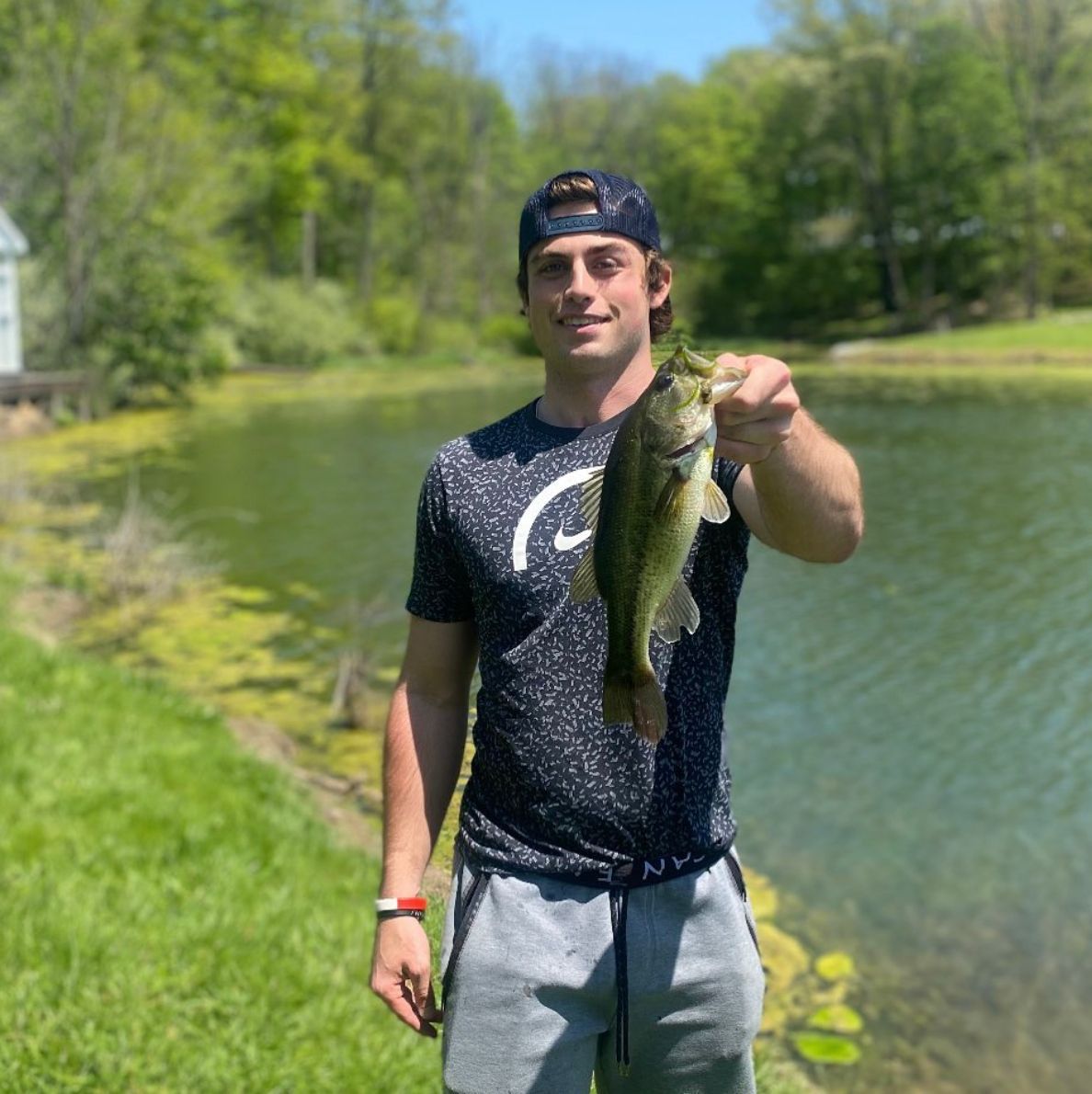
After a life-altering accident in October 2022, Devon Guffey’s story is about resilience and determination. His journey has been profiled in the summer 2023 issue of the Making Headway Newsletter: https://www.danlewisfoundation.org/devons-story . Hit by a drunk driver, Devon sustained severe brain and physical injuries, including axonal shearing, a traumatic frontal lobe injury, and facial fractures. Even after contracting meningitis while in a coma, Devon fought hard to survive – and today, his recovery continues to inspire us all. In late 2023, Devon worked as an assistant basketball coach at Blue River Valley, where he had once been a student. His love for sports and dedication to regaining his physical strength returned him to the gym, where his hard work paid off. Devon’s persistence earned him another job at the YMCA, guiding gym members and supporting facility upkeep. Through all the challenges—deafness in one ear, blindness in one eye, and a permanent loss of taste and smell—Devon perseveres. He recently regained his driving license, a significant milestone that symbolizes his increasing independence and cognitive and physical recovery. While each day may not show significant changes, Devon now sees his progress over time. Today, Devon speaks to groups about his journey, the dangers of drunk driving, and finding strength in adversity. His message is clear: recovery is a process, and sometimes, "can't" simply means "can't do it yet ." Every TBI is unique, and Devon’s story powerfully reminds us of the strength that comes from resilience and community. We are grateful to Devon for continuing to share his story and for his role in uplifting others facing difficult paths. His journey is a testament to the fact that we are stronger together. #BrainInjuryAwareness #DevonsJourney #Resilience #EndDrunkDriving #MakingHeadway
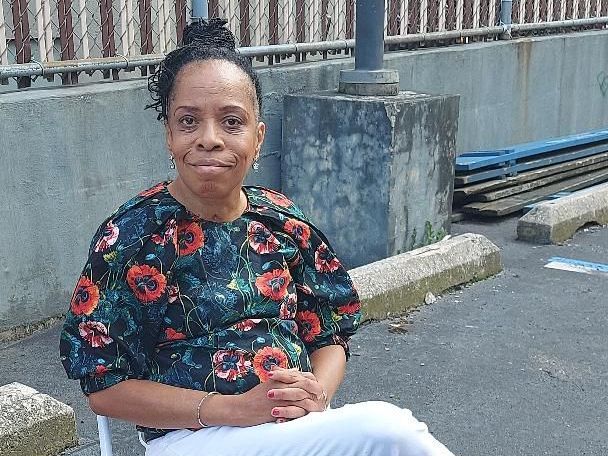
Sheryl Suzanne Nibbs, a legal secretary in a top law firm, started the process of becoming a paralegal as she approached her 40th birthday. She was fancy in her appearance, always making sure her hair, nails, and clothing were in order, a well-kept person, an avid traveler, and her mother’s best friend.

Though brain injuries usually lead to a range of physical, cognitive, and emotional issues, every person who incurs a brain injury experiences a unique set of symptoms as well as both short-term and longer-term outcomes. This is true whether the brain injury is classified as mild, moderate, or severe. Therefore, it is important to take every brain injury seriously and to get medical attention as soon as possible to prevent further damage and to improve outcomes. Bella Kellis, at age 14, experienced a traumatic brain injury. In her own words, Bella, now 16, shares her story.
